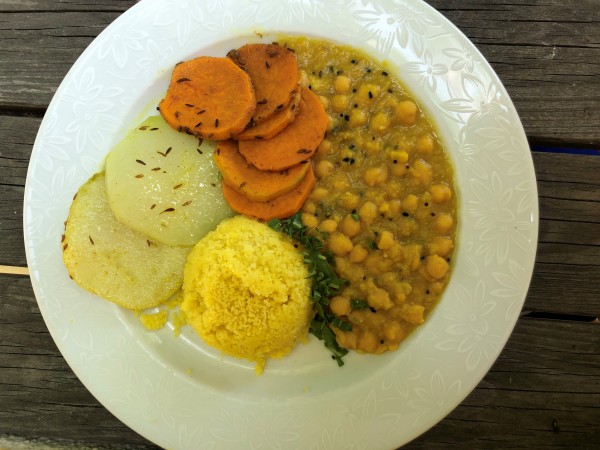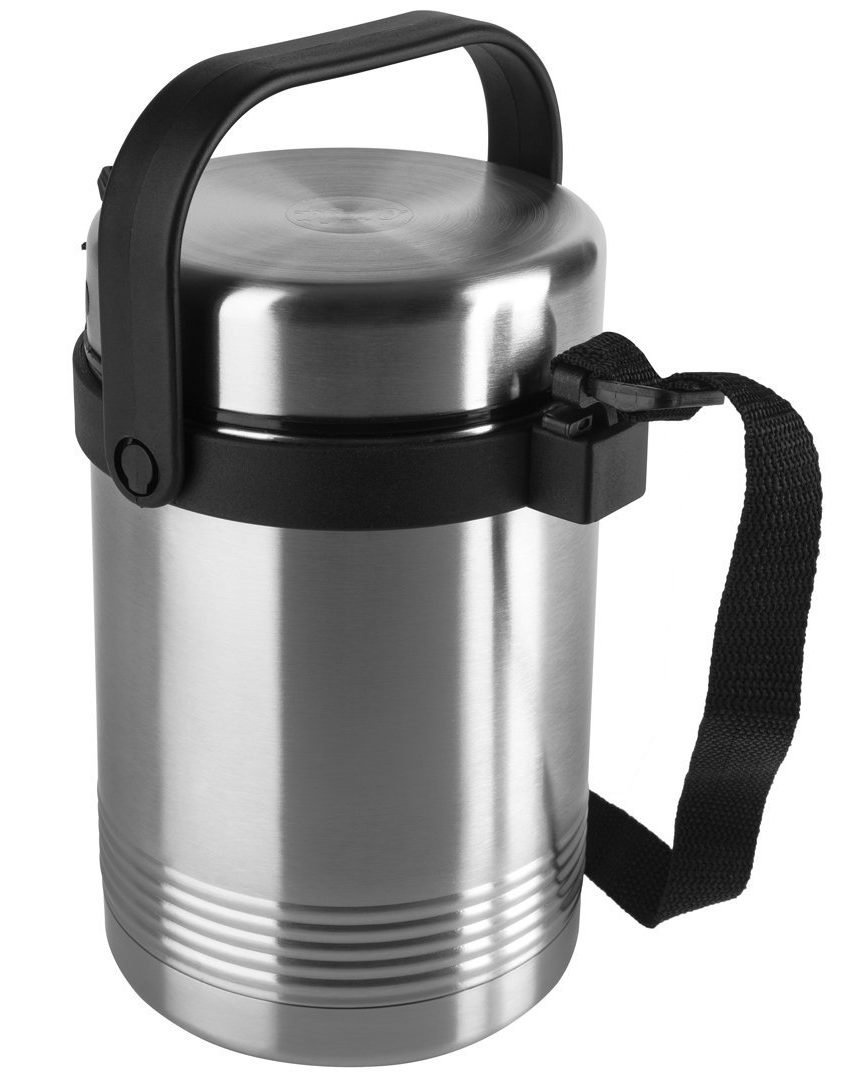Living with the Rhythms of Nature - Part 2
Movement in rhythm enhances energy. In the last article we discussed how living in harmony with the seasons improves health and vitality.
The second important rhythm in our lives is the daily rhythm. Nothing influences the workings of our mind-body system as much as the alternation of day and night.
Until about 150 years ago, before the invention of the light bulb, it was natural to follow the rhythm of day and night. With the invention of electric light and electronic entertainment media, the habits of mankind have totally changed. Who still goes to bed with the chickens today? Who gets up when the cock crows for the first time?
What stresses does modern life put on our regulatory system? What benefits do you experience when you observe the day-night rhythm?
Sequence of the doshas during the day
The beginning and the first hours of day and night are each dominated by Kapha--Dosha. Just as every wave rises with the impulse of Kapha, the day begins with an excess of Kapha energy. In nature, we experience calmness and moisture in the morning; colours and scents also show that the earth and water elements dominate. This is the time of day that is particularly suitable for work and activities that require mental or physical strength. Memory is also at its best at this time.
When the sun rises higher, Pitta, which is characterised by the fire element, dominates. This increases the power of the digestive system - time to eat a meal. If you eat around midday (11 am - 2 pm), you can count on the food being well processed and the vital substances being fully absorbed. At this time, the power of resolution is also at its highest.
As the position of the sun decreases, the influence of Vata increases. Due to the elements of space and air, energy decreases but mental perceptiveness improves. The afternoon is therefore a good time for mental activity and creativity.
The doshas during the night
As darkness falls, Kapha again dominates. Mind and body crave relaxation, restorative activities and social contact. As soon as it gets dark, the body reduces its ability to digest food. Therefore, one should avoid eating during the dark hours between sunset and sunrise. The end of Kapha time after sunset (9-10pm) is the best time to start a restful night sleep.
The time around midnight is ruled by Pitta. At this time, our body processes everything it has absorbed during the day in terms of information and substance. This process is expressed, among other things, in dreams. Those who do not sleep at this time cannot sufficiently process the constantly increasing impressions of the day. Lack of sleep at this time prevents brain regeneration and an effective supply of vital substances to the body.
 From 2 a.m. Vata dominates again and brings movement into the system. In the brain, messenger substances are formed between 2 am and sunrise that "wake up" all the glands and organs of the body and prepare them for the day. Due to these activities, sleep is somewhat shallower. If you are not in balance, you usually lie awake at this time and can only fall asleep again after sunrise at the beginning of Kapha time.
From 2 a.m. Vata dominates again and brings movement into the system. In the brain, messenger substances are formed between 2 am and sunrise that "wake up" all the glands and organs of the body and prepare them for the day. Due to these activities, sleep is somewhat shallower. If you are not in balance, you usually lie awake at this time and can only fall asleep again after sunrise at the beginning of Kapha time.
People who live completely in harmony with the laws of nature use the time before sunrise to also prepare themselves physically and mentally for the day. The classical texts are full of recommendations and exercises that are ideally practised shortly before or at sunrise: Oil massage, nasya, gandusha, oral and bodily hygiene work best when done early in the morning. Yoga and Transcendental Meditation should also be practised at this time if possible.
Diet during the day
Kapha time
After awakening, the body needs one thing above all: plenty of fluids. A glass of slightly cool water right after getting up gets the detoxification organs going. A little later, a lukewarm glass of honey-lemon (ginger) water is beneficial to stimulate metabolic activity.
Those who eat during kapha time (sunrise to 10 am) nourish all tissues. What the body takes in at this time serves to build up strength and reserves. Those who work physically or want to gain weight should definitely eat food at this time of day. This morning meal should also be substantial. Eating only sweet foods (bread, butter, jam) at this time of day can cause a Kapha imbalance. Therefore, spicy foods (honey, spices) and bitter herbs are also recommended in the morning.
Those who work mainly mentally and/or want to maintain or reduce weight should eat nothing or only very light food at this time.
Pitta time
 Until about 50 years ago, most families took it for granted to have lunch, the most important and substantial meal of the day. Today, for most of us, this is only possible at weekends. Commuting to work or school, shift work, different working hours of family members prevent lunch together nowadays.
Until about 50 years ago, most families took it for granted to have lunch, the most important and substantial meal of the day. Today, for most of us, this is only possible at weekends. Commuting to work or school, shift work, different working hours of family members prevent lunch together nowadays.
However, one of the most important recommendations of Ayurvedic medicine is to eat the main meal of the day between 11 am and 2 pm. Only those who eat during this time use the full capacity of the digestive fire. Only at midday can a nutritious meal be properly digested and processed.
 What to do if that seems impossible? There are various tips and tricks to at least come close to this target: Make sure that you eat a hot lunch in any case. So avoid a lunch that consists only of fruit, salad, raw vegetables and cold rolls. Find a way to get freshly cooked food for lunch. If that is impossible, prepare a stew in a thermos to take to work or school for at least 3 or 4 days of the working week. With a piece of fruit, some tea or lassi, you can round off this simple lunch into a complete meal with all 6 flavours and qualities. Our recommendation: start doing this as soon as possible!
What to do if that seems impossible? There are various tips and tricks to at least come close to this target: Make sure that you eat a hot lunch in any case. So avoid a lunch that consists only of fruit, salad, raw vegetables and cold rolls. Find a way to get freshly cooked food for lunch. If that is impossible, prepare a stew in a thermos to take to work or school for at least 3 or 4 days of the working week. With a piece of fruit, some tea or lassi, you can round off this simple lunch into a complete meal with all 6 flavours and qualities. Our recommendation: start doing this as soon as possible!
Vata time
Dinner should fall in the Vata time of the day - so ideally before sunset. As the digestive power is already considerably weaker at this time, this meal should be particularly light and easily digestible. Under no circumstances should you eat the largest meal of the day at this time!
There should be at least 3 hours between dinner and bedtime!
In the evening, soups, toasted bread with digestible (vegan or vegetarian) spreads or a sweet cereal porridge are recommended. Meat products, large quantities of cheese, raw vegetables (salad plates and fruit) or even a cooked main meal with several courses should only be the absolute exception - at festivals, family celebrations or on holidays.
If Kapha is strongly dominant, as evidenced by obesity, metabolic disorders such as high cholesterol or adult-onset diabetes, allergic diseases and depressive disorders, dinner should be avoided completely. In such a situation, modern interval fasting (16/8) with 2 meals in the morning and at noon is the healthiest solution, in line with traditional Ayurvedic recommendations.
What happens after sunset?
As soon as night falls, our mind-body system goes into "regeneration mode". This means above all that the body should not be occupied with new food and the mind with stressful sensory impressions. A short walk after dinner is ideal. This also revives the mind and body a little, so that there is enough energy for a meaningful evening activity.
The Kapha time after sunset should be used for regenerative activities and social contacts. How about a fun evening of games with the family or nice friends? Or a concert, a good book, a written reflection of the day in a journal?
Read here about the unfavourable effects of screen activity (TV, computer, tablet or mobile phone), which blocks the formation of the vital relaxation hormone melatonin through its "blue light".
Best time to fall asleep
Between sunset and 10 p.m. (11 p.m. in high summer with daylight saving time), Kapha accumulates in our mind-body system. Therefore, a time to fall asleep between 21:30 and 22:30 is ideal to take maximum tiredness and depth of sleep with you into the night. If you go to bed much later or if you wake up your mind and body with screen time, the Pitta that becomes stronger at midnight prevents you from sleeping deeply and restfully. In the worst case, instead of the nightly brain regeneration and liver detoxification, hunger pangs return, either leading to the refrigerator or unsatisfied, ruining the restorative sleep.
Summary
The flow of the doshas sets the rhythm for digestive fires and mealtimes. Mental and physical activities should also be adjusted to the doshas in the course of the day.
The most important recommendations in Maharishi AyurVeda include taking the main meal at noon and observing a complete abstinence from food between sunset and morning. This basic rule should only be interrupted on feast days and holidays. And this with a clear conscience!


Roswitha Maria Windisch-Schnattler schrieb am 28.08.2022
Herzlichen Dank für diese wertvollen Zusammenfassungen und "Erinnerungen", was die Zeit und der Rhythmus mit uns mach!
Alles Liebe und Gute,
Roswitha Maria